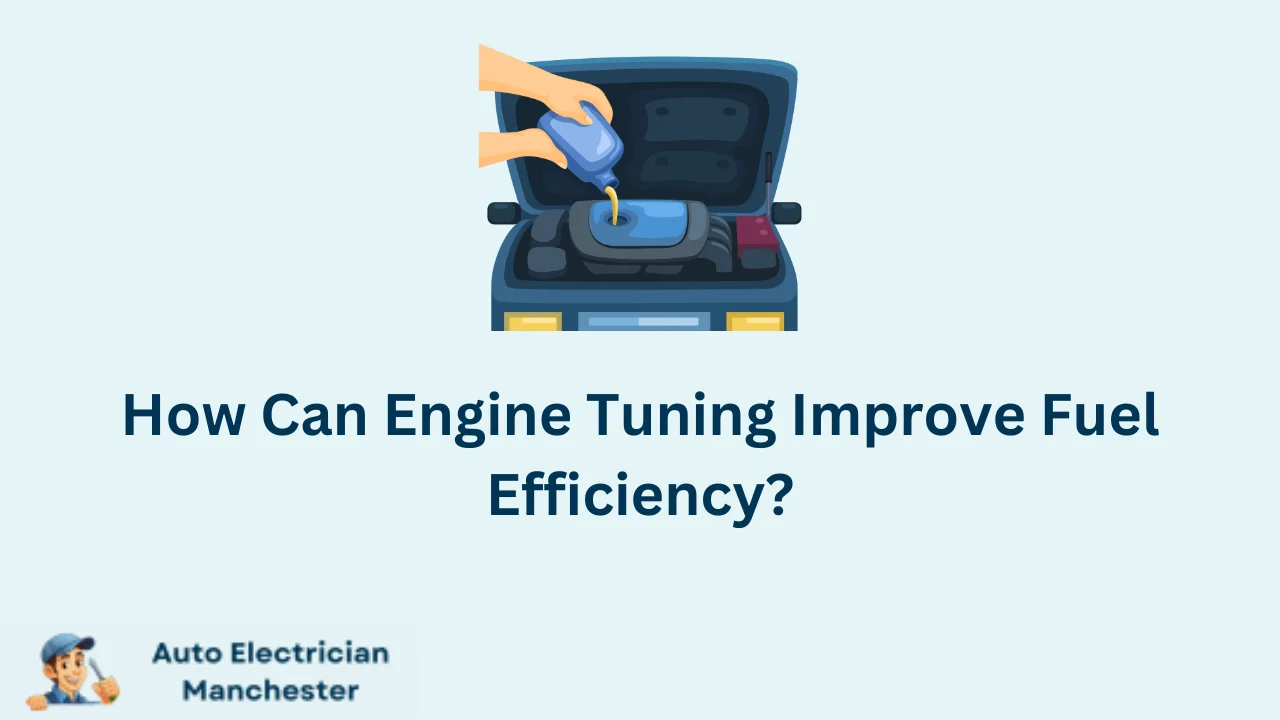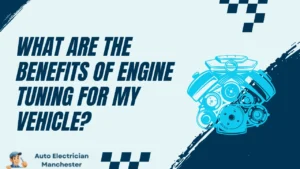
Car enthusiasts have long known the magic of engine tuning – the art of tweaking an engine for optimal performance. But what if we told you this magic could extend beyond horsepower and translate into significant fuel savings? Believe it or not, engine tuning can be a game-changer for drivers seeking to improve gas mileage without sacrificing the joy of the ride.
This article is for drivers of all stripes, from eco-conscious commuters to budget-minded motorists. We’ll delve into the world of engine tuning for fuel efficiency, exploring the science behind it, the key adjustments that make a difference, and the potential benefits you can expect. So, buckle up and get ready to discover how to unlock your engine’s hidden fuel-saving potential!
How Tuning Optimizes Engine Efficiency?
At its core, engine tuning is about fine-tuning various engine parameters to achieve a desired outcome. In the realm of fuel efficiency, the goal is to optimize the engine’s ability to convert fuel into usable power. Here’s a closer look at some key areas where tuning can make a significant impact:
Mastering the Mix: The Art of the Air-Fuel Ratio
Imagine your engine as a furnace. For efficient combustion, you need the perfect balance of fuel and oxygen (air). The ideal air-fuel ratio is around 14.7 parts air to 1 part fuel. A slightly richer mix ensures complete combustion, preventing wasted fuel. Engine tuning can precisely adjust this ratio, allowing the engine to burn fuel more efficiently and squeeze out more miles per gallon.
Timing is Everything: Optimizing Ignition for Efficiency
Think of the spark plug as the lighter that ignites the air-fuel mixture in the engine cylinder. The timing of this spark plays a crucial role in efficient combustion. Tuning can adjust ignition timing to ensure the spark ignites the mixture at the precise moment for optimal power output. In some cases, slightly advanced ignition timing can lead to a more complete burn, resulting in better fuel economy.
Friction Fighters: Reducing Resistance for Improved Efficiency
Just like a car struggling through mud, internal engine friction can rob your engine of precious fuel efficiency. Worn spark plugs, clogged air filters, and other components can all contribute to friction. Engine tuning often includes replacing these parts with fresh, high-quality components. By minimizing friction, the engine runs smoother and uses less fuel to achieve the same power output.
Balancing Performance and Efficiency
It’s important to remember that engine tuning can be a double-edged sword. While adjustments can improve fuel economy, aggressive tuning focused solely on maximizing power can have the opposite effect. Leaning out the air-fuel ratio too much, for instance, can lead to incomplete combustion and higher emissions. Additionally, certain performance modifications, like high-flow air intakes, might allow in unfiltered air, potentially harming the engine and negating any fuel efficiency gains.
The key lies in striking a balance between performance and fuel efficiency. This is where a reputable tuner, who understands the intricacies of your specific vehicle and driving habits, comes in. They can tailor adjustments to maximize your mileage without sacrificing too much power.
Can Engine Tuning Really Save You Money at the Pump?
The million-dollar question: how much can you realistically expect to improve your fuel efficiency with engine tuning? While results can vary depending on the vehicle, driving habits, and the specific tuning performed, improvements of 5-10% are not uncommon. In today’s world of rising gas prices, even a modest increase in fuel economy can translate to significant savings at the pump over time.
Conclusion
Engine tuning offers a compelling strategy to unlock your car’s hidden fuel-saving potential. By understanding the key adjustments and the importance of a balanced approach, you can optimize engine efficiency and navigate the road with confidence, saving money on gas without sacrificing driving pleasure. Remember, consulting a reputable tuner can ensure the modifications align with your specific vehicle and driving needs for a truly rewarding outcome.
FAQ
Can engine tuning for fuel efficiency void my car’s warranty?
Not always. Routine maintenance like spark plug replacements won’t void it, but consult your warranty manual or dealership before extensive modifications.

David Mack is a seasoned writer with a passion for the auto electrician niche. With years of hands-on experience and a knack for demystifying complex topics, David brings practical insights to his readers. Whether you’re a professional or a car enthusiast, his engaging articles offer valuable tips and trends in auto electrical systems.
